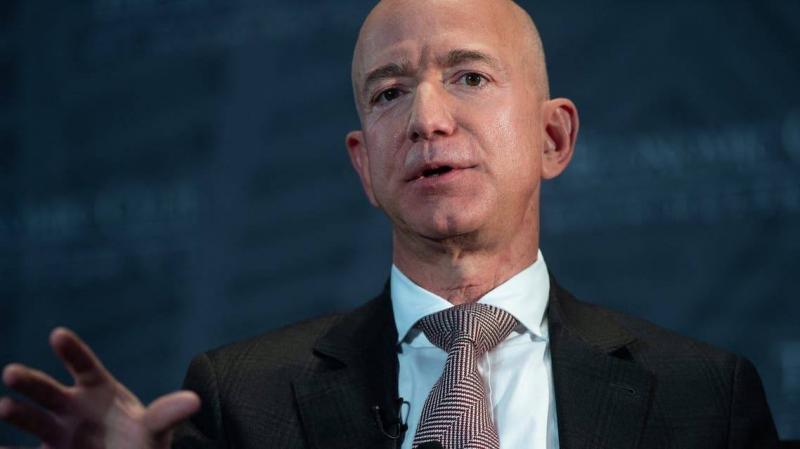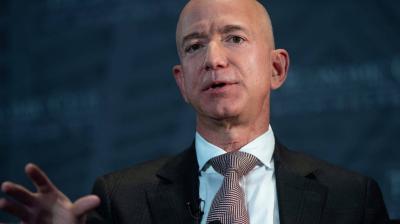In 2004, Jeff Bezos and his technical advisor Colin Bryar took a trip together to Tacoma, an hour south of Seattle in Washington state. At that time, Amazon was a company valued in the billions. Bezos and Bryar visited Amazon's customer service center, where they spent two days as customer service agents. Bryar recounted, "Jeff was answering calls himself." He recalled that one particular product complaint kept surfacing. "Jeff's eyes widened in astonishment." Bezos was frustrated. Clearly, there was something wrong with the product, but it had not been escalated. Later that day, he sent an email requesting more effective ways to report defective products. During this time, Bezos developed a series of extraordinary leadership principles, which some argue are the backbone of his success. Others believe they highlight everything that is wrong in Big Tech.
Jeff Bezos will step down as CEO of Amazon on Monday, exactly 27 years after its founding. Speak to anyone who has previously worked at Amazon, and you won’t have to wait long before you hear the phrase "customer obsession." Bezos was not looking for quick profits; for him, company's success depended on having happy customers, at almost any cost. Nadia Shouraboura started working at Amazon in 2004. She was later invited to join the "S Team," Amazon's elite team of managers, the first board of directors. But when she started, she thought she would be fired immediately. She said, "I made the biggest mistake of my life during the Christmas peak." Shouraboura requested to place key products on warehouse shelves that were far too high. This caused delays and expenses to retrieve the right products from the shelves. "I came up with a clever way to lose as little money as possible and fix the problem somewhat. But when I talked to Jeff about it, he looked at me and said, 'You're thinking about all this wrong.' He said, 'You're thinking about how to improve the ways to get money here. Fix the problem for the customers, and then come back to me in a few weeks and tell me the cost.'"
**Shocking Allegations**
Bezos has many critics. Last month, a shocking article from ProPublica claimed it had seen Bezos's tax returns, alleging that he paid no taxes in 2007 and 2011. Other negative stories about Amazon, its harshness, and accusations of monopolistic practices have not improved Bezos's reputation. Nevertheless, many people who work closely with him disagree with characterizations of him as disengaged or selfish. To them, he is a visionary businessman, a man with a unique focus who created a legendary business philosophy and a company valued at around $1.8 trillion (1.3 trillion pounds).
**Pizza Pie Rule**
Bezos likes small teams. He has a rule for keeping meetings productive: you have to ensure you can feed the entire group with two pizzas. He hates PowerPoint presentations, preferring instead written memos for executives to discuss. To prevent dominant personalities from wielding too much influence, he rotates the discussion among everyone in the meeting, asking each person how they feel about a given question. People who know him say he loves those who push back. Shouraboura says, "We would argue, and our voices would rise." She added, "Everything is very open, clear and straightforward, and the conversations are heated and very emotional. But it's about the topic, never against the person." Amazon has a list of 14 "Leadership Principles." One of these principles is "Have Backbone; Disagree and Commit." It seems Bezos genuinely wants to promote that culture at a higher level. The principle states that leaders "should not compromise for social cohesion." However, there are questions about whether this philosophy is always interpreted correctly within Amazon.
Bezos is a fan of engineering, inventions, and machines. He is obsessed with metrics - a trait that is not necessarily bad in the logistics world. But his critics argue that this obsession carries human costs, especially in Amazon's numerous warehouses. During the unsuccessful attempt by Amazon workers in Bessemer, Alabama, to form a union, I spoke with many employees who said they felt like "a cog in the machine." Others might describe feeling "perpetually monitored." But at the higher levels, Bezos's management style appears different. He likes his teams to have the autonomy he believes fosters innovation.
The successful cloud computing service at Amazon had little to do with the company's core business: e-commerce. Nevertheless, Bezos supported the idea, granting his trusted employee Andy Jassy the freedom and capital to start building a company within a company. Bezos views Jassy as an entrepreneur, not just a manager, which is a key reason for taking over leadership at Amazon. Shouraboura says, "It's easy to be brave when it's a startup. As you progress, it becomes harder to be brave because you are now risking a lot. He has always been very brave."
People who know him say Bezos enjoys tackling problems "backwards." In the planning stage, teams work on creating a reverse timeline: start with the final step and then work backwards. Shouraboura says, "The first thing the team does is write a press release, which is usually the last thing companies write." Bezos has always approached work with a long-term and far-sighted policy. Those close to him often use the word "methodical" to describe his preference for customer satisfaction over seeking quick profits.
Bezos has always been fascinated by space travel, and later this month, he aims to travel to space on board the first crewed flight organized by his company Blue Origin. More than 150,000 people have signed a petition calling for him not to come back to Earth, but whatever your opinion of him, Bezos has proven to be an extremely smart and capable leader, a person unlike the way companies operate around the world.




